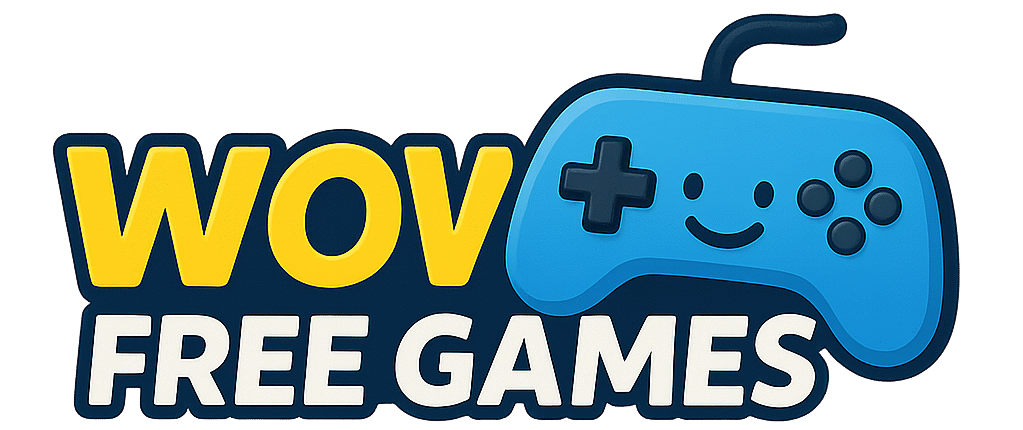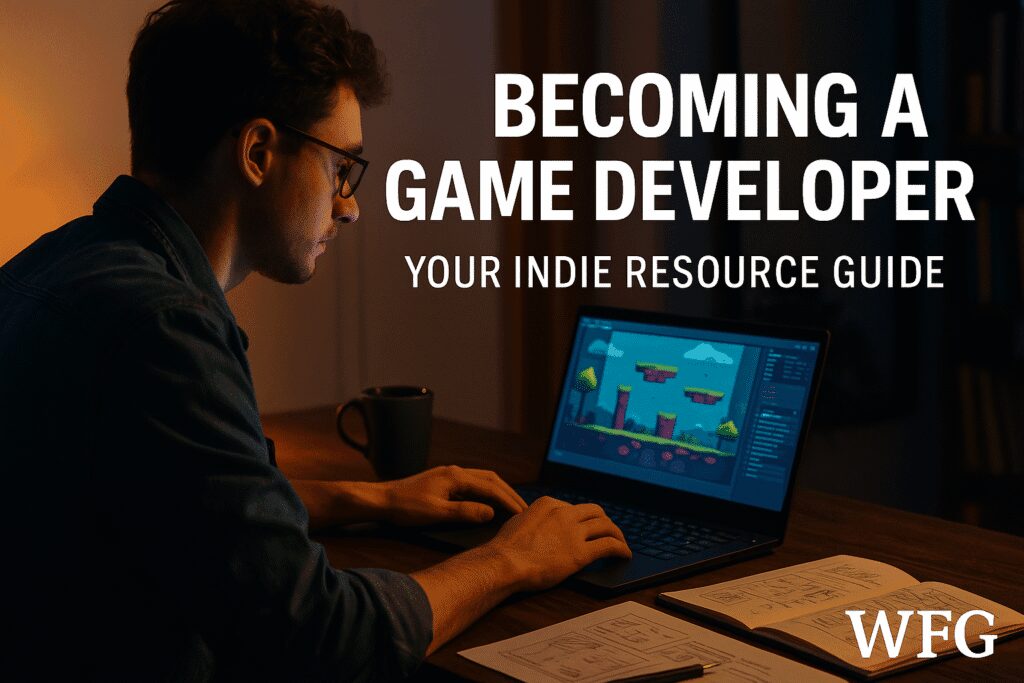For many gamers, there’s a moment when playing isn’t enough anymore. The dream shifts from beating the final boss to creating the world where the boss lives. That’s the spark — the first step toward becoming a game developer.

The good news? You no longer need a giant studio or years of formal training to bring your ideas to life. Thanks to powerful free tools, global communities, and accessible courses, indie developers are changing the gaming landscape from bedrooms, coffee shops, and small studios around the world.
This guide is for you — the self-starter, the dreamer, the indie developer in the making. We’ll explore the best tools, platforms, and communities to help you navigate your path into game development.
Why “Becoming a Game Developer” Looks Different Today
Not long ago, breaking into the gaming industry required a degree, insider connections, and expensive software. Today, the story is very different.
Best Rated Online Gambling Sites in 2025: Play Safe, Win Big
- Indie Success Stories: Games like Undertale, Stardew Valley, and Celeste were built by small teams (sometimes even one person) and went on to sell millions.
- Accessible Tools: Engines like Unity, Godot, and Unreal offer free or low-cost licenses for beginners.
- Global Communities: Online spaces connect aspiring developers with peers, mentors, and feedback — often for free.
This democratization means that if you have persistence, creativity, and the right resources, becoming a game developer is not just a dream — it’s a reachable goal.
Essential Game Development Tools for Beginners
The journey starts with the right toolkit. Here are the essentials for indie developers:
1. Game Engines
- Unity – Beginner-friendly, widely used, and backed by huge online support. Perfect for 2D and 3D games.
- Unreal Engine – Known for stunning visuals and AAA-quality graphics. Great for those interested in immersive 3D worlds.
- Godot – Free, open-source, and lightweight. Ideal for indie devs who want full creative control without licensing fees.
Tip: Start small. Pick one engine and stick with it until you feel confident. Jumping between engines too early can slow progress.
2. Art & Animation Tools
- Blender – Industry-standard 3D modeling and animation software (and completely free).
- Krita – Open-source digital painting tool perfect for concept art and textures.
- Aseprite – Beloved by indie devs for pixel art and sprite animations.
3. Sound & Music Tools
- Audacity – Free audio recording/editing software.
- LMMS (Linux MultiMedia Studio) – A digital audio workstation for creating original soundtracks.
- Free Sound Libraries – Sites like freesound.org offer thousands of reusable sound effects.
With these tools, you can cover every corner of development: coding, visuals, and audio.
Learning Platforms & Courses for Indie Developers
Self-teaching is easier when you know where to look. Here’s where indie developers can find guidance:
Free Resources
- YouTube Channels – Brackeys (Unity), Dani, and Blackthornprod provide beginner-to-advanced tutorials.
- Forums & Communities – Reddit’s r/gamedev and Stack Overflow are invaluable for troubleshooting.
- Open-Source Projects – Explore GitHub for real-world examples of game code and assets.
Paid Courses (Affordable & Beginner-Friendly)
- Udemy – Offers structured courses like Complete C# Unity Developer.
- Coursera – Partnered with universities for game design and development tracks.
- GameDev.tv – Highly rated courses built specifically for aspiring indie developers.
Active Communities
- Discord Servers – Game dev groups offer real-time help and collaboration.
- Itch.io – A platform for indie devs to publish games, join jams, and network.
- Reddit AMA & Indie Game Dev Blogs – Real experiences from devs who’ve walked the path.
Step-by-Step Roadmap to Becoming a Game Developer (Indie Path)
Navigating game development as a self-starter can feel overwhelming. Here’s a roadmap to keep you focused:
- Learn the Basics
- Start with simple tutorials in your chosen engine.
- Understand programming (C# for Unity, GDScript for Godot, Blueprint or C++ for Unreal).
- Explore no-code game engines (Construct, RPG Maker) if coding feels intimidating.
- Build Small Projects
- Start with simple clones like Pong, Tetris, or a basic platformer.
- Focus on finishing projects — a completed simple game is more valuable than a half-finished “dream game.”
- Join Communities & Share Progress
- Post builds or screenshots for feedback.
- Engage in online discussions to learn faster.
- Participate in Game Jams
- Events like Ludum Dare or Global Game Jam push you to build something under a deadline.
- You’ll learn collaboration, time management, and problem-solving under pressure.
- Refine & Grow
- Move from small prototypes to larger, original projects.
- Explore publishing platforms like Steam, itch.io, or even mobile app stores.
Common Mistakes Indie Game Developers Make (and How to Avoid Them)
Even the most passionate indie devs fall into traps. Here’s how to sidestep them:
- Mistake 1: Aiming Too Big
- New devs often want to build the next Skyrim. Instead, start with a tiny project and scale up.
- Mistake 2: Neglecting Audio & Storytelling
- Gameplay matters, but music, sound, and narrative create immersion.
- Mistake 3: Skipping Playtesting
- Don’t assume your game is fun just because you like it. Get outside feedback early.
- Mistake 4: Burning Out
- Pace yourself. Break your work into smaller tasks, and celebrate progress.
Resources to Keep You Motivated
Game development is as much about persistence as it is about skills. Inspiration matters.
- Podcasts:
- Game Dev Unchained – Industry insights from professionals.
- Indie Game Movement – Focused on marketing and indie dev struggles.
- YouTube Channels for Motivation:
- Game Maker’s Toolkit – Deep dives into game design principles.
- Extra Credits – Educational yet entertaining takes on game development.
- Indie Success Stories:
- Undertale (Toby Fox) – Made almost entirely by one person.
- Stardew Valley (Eric Barone) – Took four years, but redefined indie farming games.
- Celeste – A small team that won Game of the Year awards.
These stories remind us: great games don’t require big teams — just vision, persistence, and the right tools.
Conclusion
Becoming a game developer as an indie or self-starter is no longer a distant dream. The tools are free, the communities are welcoming, and the path is open.
Best NFT Games to Earn Money in 2025: A Complete Guide for Gamers and…
Start small. Use the resources we’ve listed. Learn, share, and grow. And most importantly — finish your first game. It doesn’t have to be perfect; it just has to exist.
Because every legendary developer began the same way: with an idea, a passion, and a single step.
FAQs – People Also Ask
Can I become a game developer without a degree?
Yes. Many indie devs are self-taught using online tutorials, communities, and free tools. A degree can help, but it isn’t required.
What is the best game engine for beginners?
Unity and Godot are the most beginner-friendly. Unity has massive support and tutorials, while Godot is lightweight and open-source.
How long does it take to become a game developer?
It depends on your dedication. You can learn basics in a few months, but mastering development and publishing games can take years.
Do I need to know coding to make games?
Not always. Engines like Construct or RPG Maker allow no-code development, but learning some programming gives you far more flexibility.




Pingback: earn bitcoin by playing games